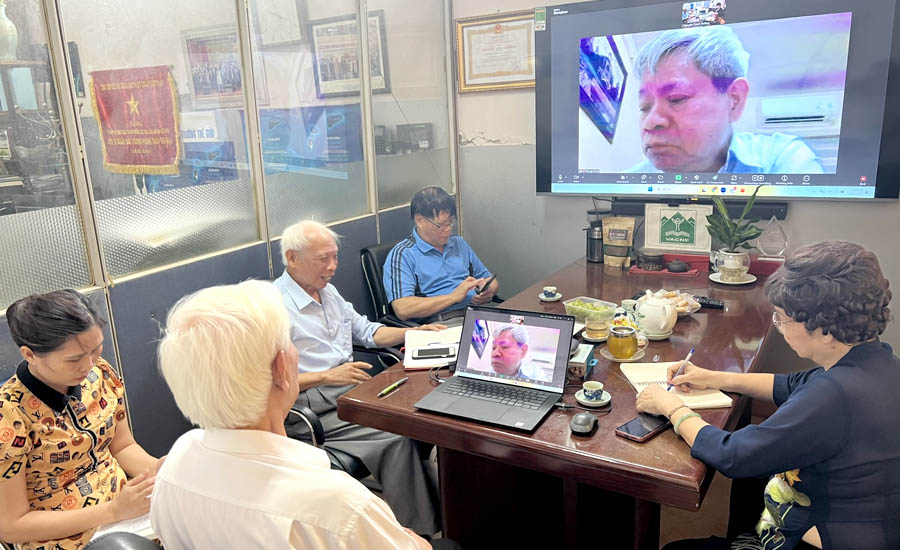Members and organizations of VACNE need to strive to register to carry out scientific research tasks in the new era.
(VACNE) – This morning (November 7th), the Scientific Council of the Vietnam Association for the Conservation of Nature and Environment held a meeting in a hybrid format, aiming to discuss the direction of scientific research in the new context.
The meeting took place in a proactive, serious, and constructive spirit, attracting the active participation of the Council members and representatives from the Association's professional units.

At the meeting, the council members thoroughly discussed the scientific contents that need to be prioritized for research, especially given the current operational conditions of the Council and based on the spirit of the newly passed Science and Technology Law by the National Assembly. Building on the scientific research results achieved in the past, many important proposals have been put forth, focusing on the areas of resources, environment, climate change, green transformation, and sustainable development. All proposals have been carefully considered for their feasibility and implementation effectiveness.
Concluding the meeting, Professor Dr. Dang Kim Chi – Chairman of the Scientific Council, highly appreciated the sense of responsibility, the candid discussions, and the dedication of the members. The Chairman Professor agreed to report to the Leadership Council on three key contents:
1. Encouraging the registration of research tasks: The council and its members commit to continue researching, proposing, guiding, and motivating affiliated Institutes and Research Centers, as well as local member Associations, to actively select and register for the implementation of research projects with high practical significance.
2. Maintain and develop a series of scientific seminars: The Council unanimously proposed that the Leaders of the Association urgently implement the traditional series of scientific seminars of VACNE in the new context. Specifically, the series will continue with 7 seminars on climate change and 8 seminars on environmental impact assessment (EIA) that were previously co-organized with the Korean EIA Association.
3. Annual publication of scientific journals: The council welcomes and recommends that the association continues to maintain the tradition of "self-editing and publishing at least one scientific publication per year on topics related to resources, the environment, climate change, and sustainable development." It is anticipated that next year's publication theme may relate to natural disasters, environmental incidents, or the harmful effects of straw burning and open burning on the environment and public health.
The meeting ended in an atmosphere of excitement, understanding, and responsibility, laying an important foundation for the scientific research activities of the Association in the new era.